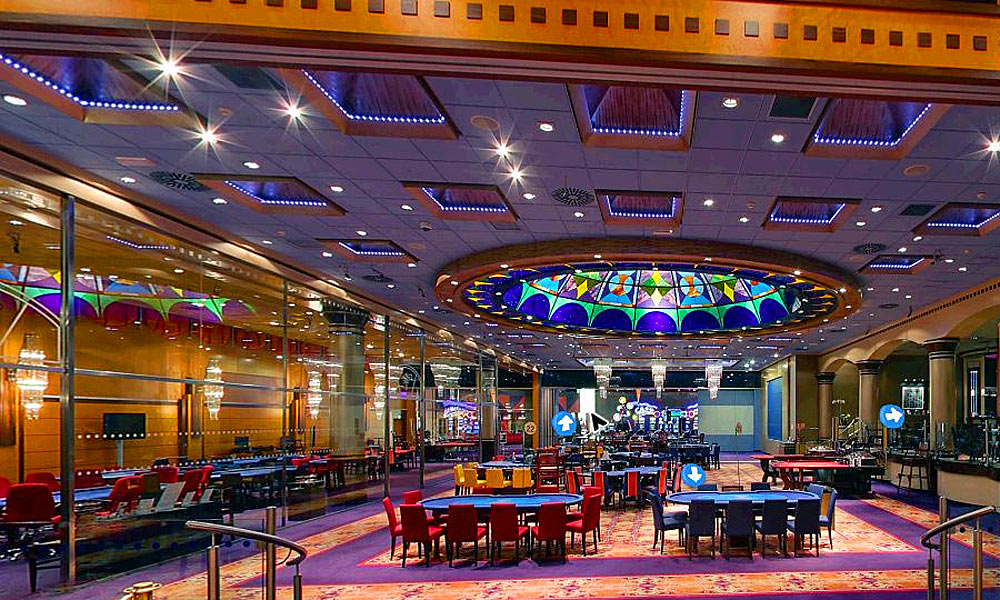The Way Gambling Games Accommodate Various Player Categories

Gambling games have consistently attracted a wide range of players, offering not only the excitement of risk but also a unique experience designed for diverse kinds of players. From strategic players who succeed through calculation and skill to the casual players seeking entertainment, casinos understand the subtleties of their audience and design games that cater to these diverse preferences.
In delving into the universe of casino gaming, we discover a rich tapestry of choices that interest players of all kinds. Competitive poker tables entice those who are competitive, while exciting slot machines draw in individuals in search of immediate satisfaction. Whether it be the chance to win big or simply enjoying the social atmosphere, casinos tailor their game offerings to ensure that everyone finds a spot where they feel welcome and involved. Comprehending how these games are designed for diverse types of players can enhance not only our appreciation of them but also our method for choosing which games to play.
Grasping Gamer Groups
In the varied world of gambling entertainment, players can be grouped into separate categories based on their drives and preferences. These player types range from the casual and social gamers, who enjoy the entertainment value and social connections that gambling provides, to the more analytical and analytical players, who seek to boost their odds and winnings. Comprehending these different kinds is essential for casinos to tailor their services and create captivating settings. BET88
One popular category is the group-oriented player, who views casino games as a form of group interaction and entertainment rather than a serious gambling pursuit. These participants often enjoy games that encourage engagement and camaraderie, such as poker. Their emphasis is on the experience rather than the outcome, so vibrant atmospheres and mutual moments are what they hold dear the most.
On the contrary end of the spectrum, competitive players are motivated by competition and the pursuit of ability. They tend to lean toward games that necessitate strategic thinking and strategy, such as blackjack, where their abilities can affect the conclusion. This kind often engages with the games on a more intense level, utilizing insight and approaches to gain an edge. Understanding these motivations allows casinos to design environments and game selections that cater to each participant’s unique likings.
Strategies for Game Design
Casino games are designed with varied player types in mind, employing multiple strategies to draw in and engage them. For casual players, the focus is on ease and clarity. Games like slots are frequently visually appealing with straightforward mechanics. This enables players to experience the experience without a steep learning curve, creating an welcoming atmosphere. The bright colors, engaging audio, and themes create a fun environment where players can quickly get immersed and entertained.
For tactical players who enjoy a deeper level of engagement, games such as poker and 21 offer complexity and strategic elements. These games feature strategy and tactical choices, attracting to players who excel on competition and want to utilize their mental skills. The design of these games regularly includes complex rules and mechanics that challenge players to hone their skills and develop strategies over time, resulting in a fulfilling experience for those who appreciate perfecting the game.
Moreover, community-oriented players are considered through games that emphasize interaction and community. This includes live dealer games and multiplayer formats, which cultivate a sense of camaraderie among players. The design of these games typically incorporates chat features and communal aspects, allowing players to connect and share experiences. By creating an environment where interaction is promoted, casinos can effectively involve social players, making the gaming experience more enjoyable and unforgettable.
Enhancing Participant Satisfaction
Casino options have evolved notably to provide a more immersive environment for gamers. Game developers focus on high-quality visuals, dynamic soundscapes, and creative gameplay mechanics that engage gamers into the gaming space. By employing technology, such as virtual reality and AR, casinos ensure that participants feel as if they are part of a dynamic experience, enhancing in addition to the enjoyment of the activities but also the complete satisfaction of being in a casino.
Player interaction is another critical element in improving gamer satisfaction in gambling games. Numerous titles are developed to promote interaction among gamers, whether through multiplayer formats or messaging options. This community feature attracts gamers who like communicating with other participants while competing, developing a sense of community. Moreover, social features can include scoreboards, competitions, and rewards for team play, which attract determined players and encourage them to come back for additional.
Lastly, personalization plays a crucial role in adapting the experience for various player types. Casinos and title creators examine gamer activities and tastes to present tailored gaming recommendations and benefits. By grasping the distinct tastes of players, betting venues can provide personalized offers, incentives, and new titles that satisfy each individual, thus improving their overall satisfaction and commitment to the betting establishment.
Gambling games have consistently attracted a wide range of players, offering not only the excitement of risk but also a unique experience designed for diverse kinds of players. From strategic players who succeed through calculation and skill to the casual players seeking entertainment, casinos understand the subtleties of their audience and design games that cater…
Recent Posts
- Top-notch 10 Must-Try Online Casinos for a Thrilling Gaming Experience
- The Top 10 Online Casino Games for Beginners to Try Today
- Maximizing Your Winnings in Online Slot Tournaments: A Comprehensive Guide
- The Rise of Mobile Casino Slot Games On the Web: A Trend to Watch
- The Emergence of Portable Casino Machine Games Online: An Evolution to Keep an Eye On